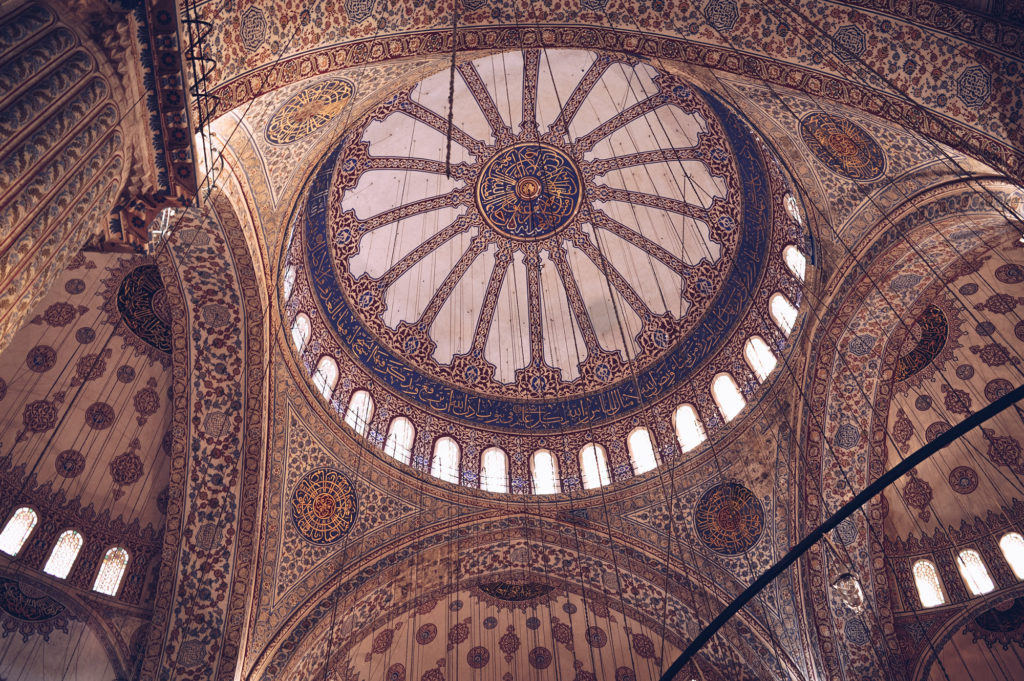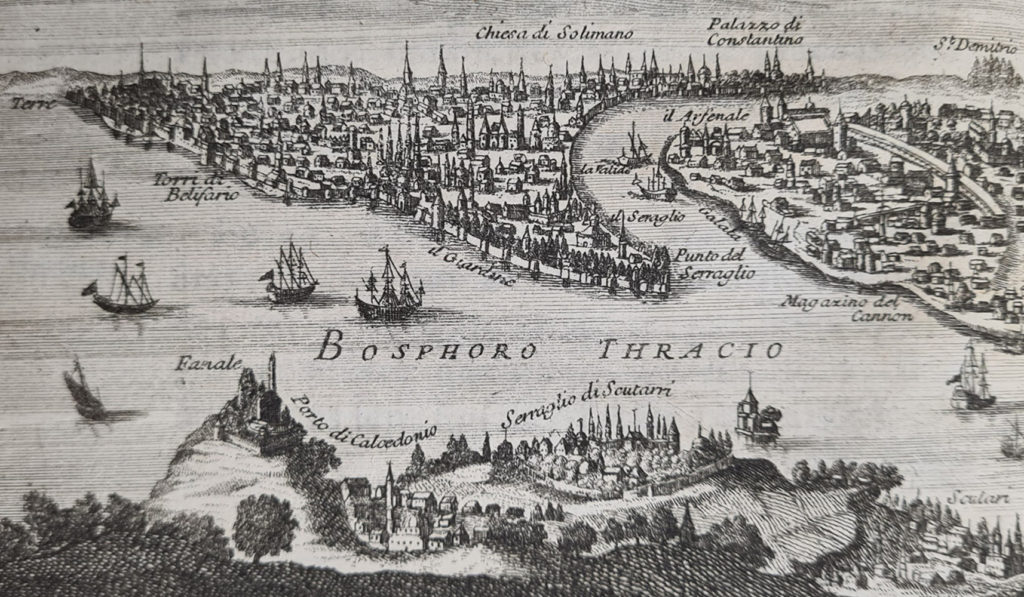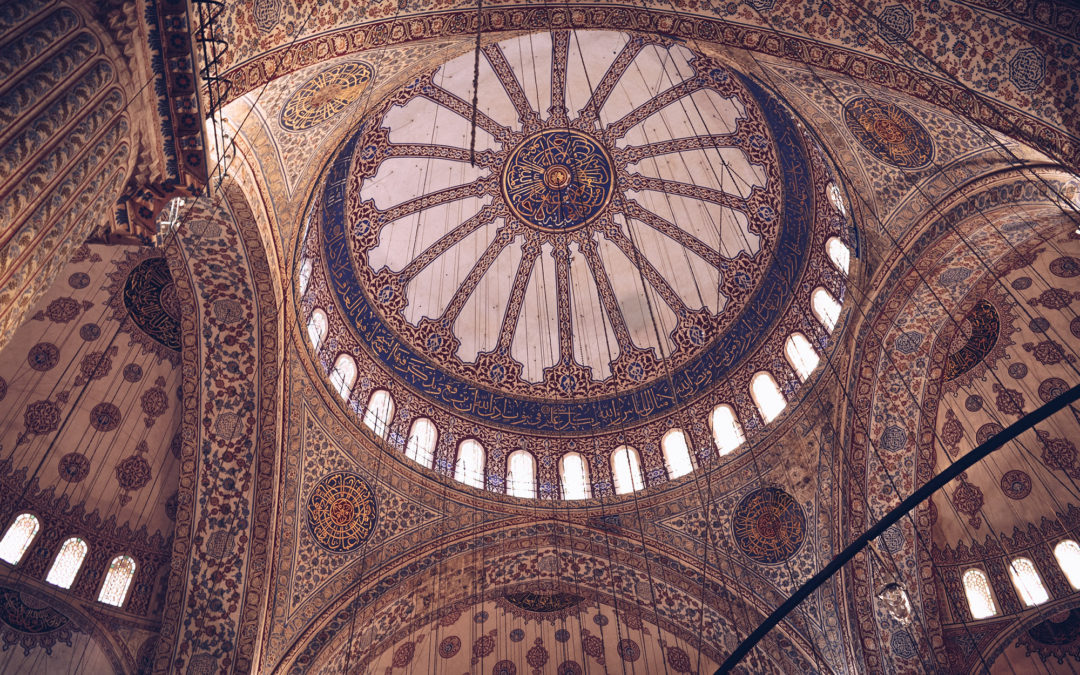
‘The Blue Mosque, Istanbul’ – Source Unsplash
This post was written by Michael Townsend, Collections and Metadata Librarian at the Institute of Historical Research Library.
On the lower ground floor of the Institute, readers can find the library’s International Relations collection. While the bulk of the titles housed there concentrate on European and US foreign policy during the nineteenth and twentieth century, there is also a sizeable range of published sources for the period prior to 1815, selected titles of which are listed in the new Early Modern History collection guide. These range from published letters and diaries from diplomats who shaped and oversaw foreign relations between West European states and kingdoms as well as reports of diplomatic missions to powers such as Muscovy, Safavid Iran and China.
Also within this section of the collection are works outlining the diplomatic missions and foreign relations between European powers such as Venice, the Holy Roman Empire and Britain with the Ottoman Empire from the sixteenth to the early eighteenth century. Despite their obvious worth as sources of early modern diplomatic history, the observations they provide of developments in Ottoman politics and aspects of society in the Empire are equally valuable. Works such as Legationis Turcicae epistolae quatuor written by the Imperial diplomatic representative, Ogier Ghiselin de Busbecq during the reign of Suleyman the Magnificent and the letters of Lady Mary Wortley Montagu, resident in Istanbul during her husband’s diplomatic mission to the Ottoman court in the early eighteenth century, provide impressions of diverse aspects of the life they witnessed including art and architecture, medicine, their understanding of Islam, the position of women and the nature of politics at two very different periods of Ottoman history. Additional sources in our collections give similarly wide-ranging observations from the correspondence sent from Istanbul to the Doge in the late fifteenth century (22 dispacci) and the Venetian ambassador, Claudio Ranzo’s account of his journey to Istanbul a century later (Relatione d’un viaggio) to seventeenth century accounts from the United Provinces (Affaires Turques…1645-65) and Britain (Reports on the manuscripts of Allen George Finch).
Understandably, these sources do have their limitations. Coming from the perspective of western Christian cultures that had engaged militarily at times with the Ottoman Empire since the fourteenth century, their conclusions need to be understood with this cultural legacy in mind. However, intriguingly many do provide an alternative and generally more positive depiction of Ottoman politics for much of this period compared to some Ottoman political works written during the sixteenth and seventeenth centuries, dubbed as “decline” treatises (Howard, Douglas A. ‘Ottoman historiography and the literature of “decline” of the sixteenth and seventeenth centuries’ Journal of Asian history, vol. 22 (1988), pp. 52–77, p. 73; this journal can be accessed in electronic format from within the library), many of which are in larger collections on Ottoman history found in, for example, the library of the School of Oriental and African Studies. Although there are exceptions, especially from the late seventeenth century onwards; the British diplomat Paul Rycaut, for example, charted what he viewed as a trajectory of decline beginning in the late sixteenth century.

‘View of Istanbul’ from Cornelis de Bruyn’s Voyage au Levant (1725)
Moreover, being collections of diplomatic sources they are often focused on Istanbul and the surrounding region. Travel accounts remedy this limitation degree, offering insights into not only important commercial centres in other parts of the Empire, but also their growing political importance. Works found in our collections such as Early voyages and travels in the Levant, The travel diary of Robert Bargrave, Levant merchant and Jean de Thevenot’s Indian travels…into the Levant all offer insights into aspects of Ottoman politics and society – especially Aleppo – away from Istanbul and the Sublime Porte. To explore our collection of travel writing further search the catalogue; you can either do author and title searches if you know specifically what you are looking for, or keyword or subject searches if you would like to browse what we have.
Titles within our collections can also be useful for additional searches of relevant source material; works such as Studies in Islamic historiography and Approaching Ottoman history give an overview of the different types of sources and historiography, coupled with useful online catalogues such as Jisc Library Hub and WorldCat should help researchers find sources not held in the IHR.
———
In addition to the early modern history guide, the library staff have also recently created guides for medieval and modern history where researchers can get a better understanding of the extent of the Institute’s varied collections.

